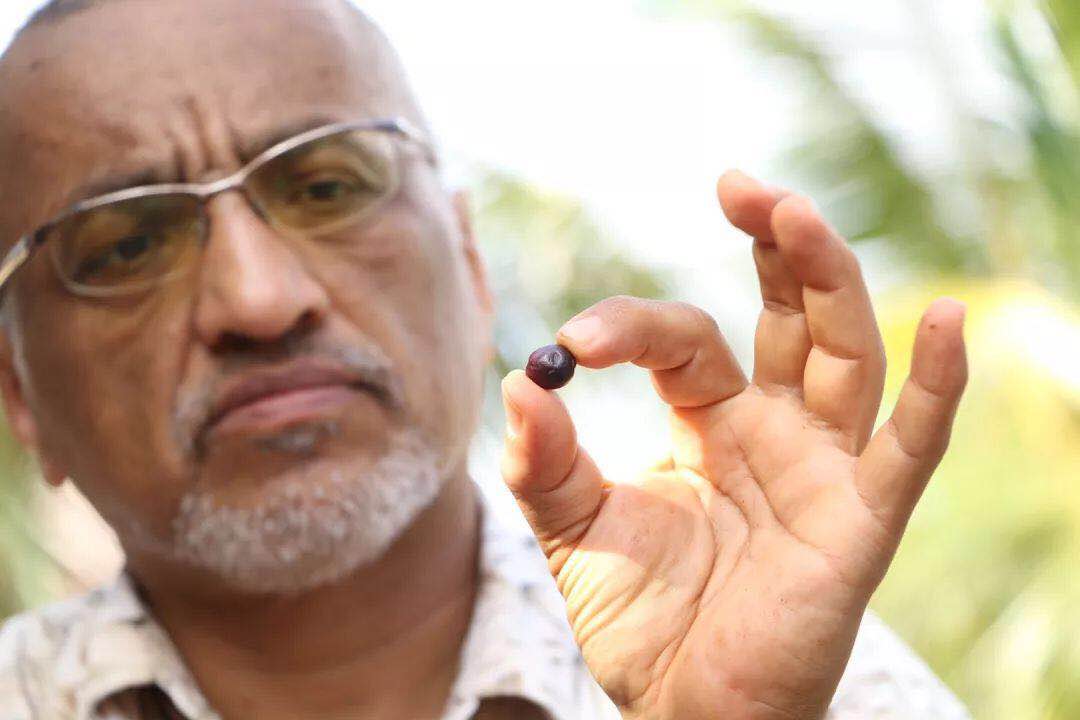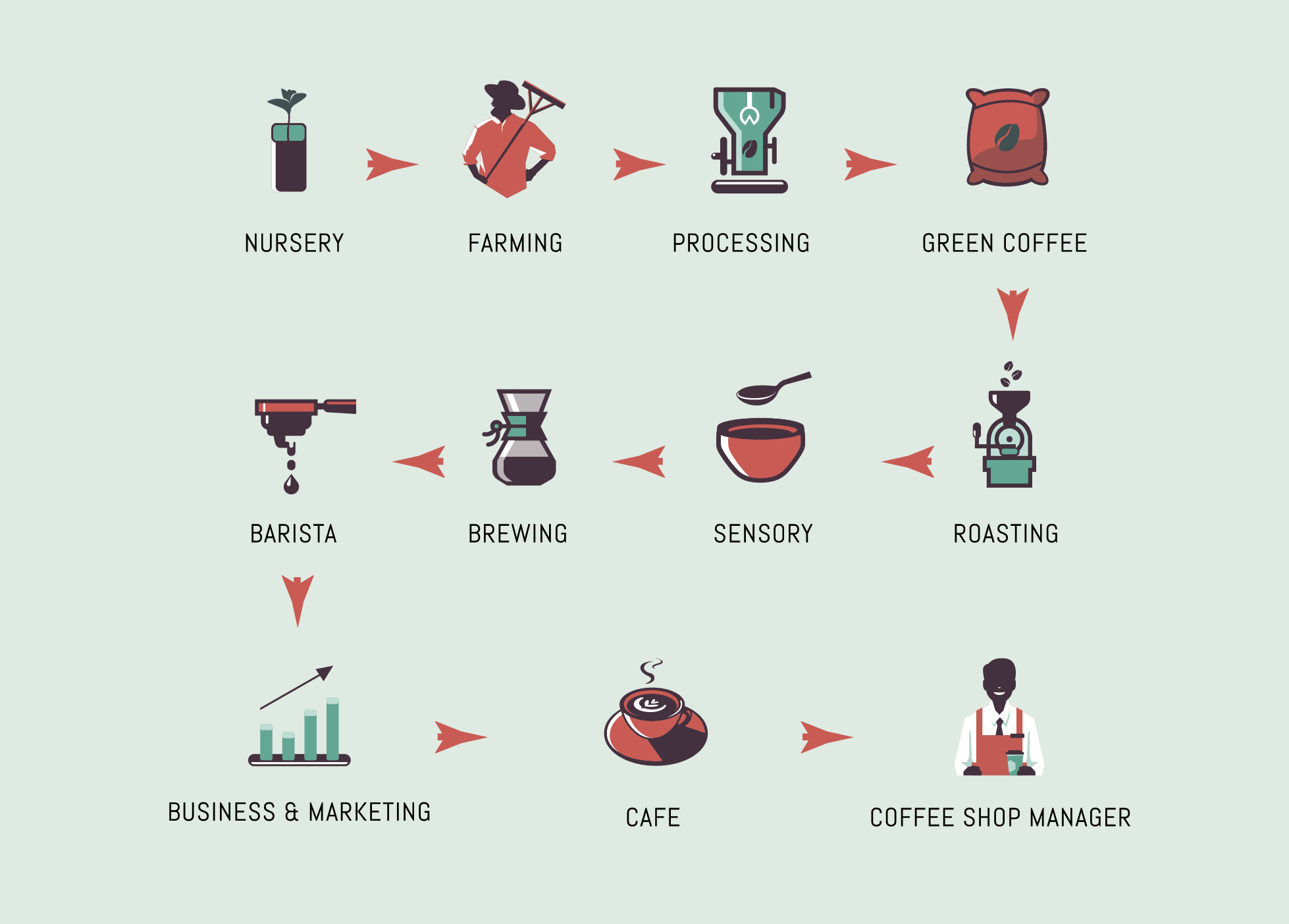The coffee chain has many steps all with the goal of making a delicious cup of coffee (in speciality coffee, at least).
As Guatemalan farmer and processing expert Nilton Perez says,
“Eighty percent of coffee’s flavor is a gift, you cannot change it.”
Human’s try to be in control of everything, but no matter how hard we try, we cannot change our terroir. If you want to change your altitude or climate, you have to move.
The other 20% of coffee’s flavor can be changed through picking methods, varietals, processing, roasting, and extraction.
One of the growing focuses in the industry is on processing.
There are plenty of books and videos you can watch about roasting, extraction, brewing, etc. But for processing, the amount of science is growing, but some concepts are still somewhat nebulous. Processing is important for farmers, roasters, and baristas to understand. The more you understand something, the more you appreciate it.
Even those that don’t know or understand processing still get excited when they hear some guy named Sasa say “carbonic maceration,” or when their bag of coffee says “honey processed.”
Yea sure, it sounds sexy, but what even is it? And does “honey” process really use honey?
There are several terms in the industry that are probably intentionally complex sounding. I am not sure they should be, but until the industry as a whole has a grasp on processing, this complexity and ambiguity won’t go away.
In March we have Dr. Manuel Diaz coming to teach us about processing.
Dr. Diaz is a leading expert in the coffee industry in processing and has consulted farms in over 10 countries.
With a pHD Development from the London School of Economics and Political Science and over 15 years of professional coffee experience, Dr. Diaz is continuing to make waves in the industry with his research in farming, processing, sensory analysis and roasting.
Here’s Dr. Manuel’s self-introduction
Video address : https://v.qq.com/x/page/l0502rw8ii1.html
Dr. Diaz has been a Q-Grader Instructor for 12 years, helped CQI write their R Grader program, and has consulted farms in 10+ different countries.
Dr. Daiz has been to Yunnan several times to share his knowledge with the Chinese coffee industry.
Check out these quotes below from his previous students.
- “This class opened the door for me and my coffee farm.” -Lisa
- “This class was super useful. I got to understand not only processing, but the chemistry of coffee.” -Banli
- “This course was awesome. It opened my eyes to what coffee can be. The theory I learned from his course 2016 still applies today. I regularly go back and look at my notes to review the knowledge he shared.” -Meizi
If there was ever a time to learn more about what happens at the farm level or about sensory analysis, this is the perfect chance.
Dr. Diaz will be teaching SCI Processing Level 2 and 3 March 18th -23rd.
This will also be the perfect time to come to Pu’er as the Pu’er coffee expo will be happening March 13-17!
Processing level 1 will be taught by Joel Smith and XuXin from 11th-13th.
Joel is Torch Coffee Education Manager.
XuXin is managing Torch Coffee’s Mountain Man processing program.
Then we will take a few day break to go to the expo, enjoy the festivities, and go on a farm tour.
After all of the festivities and talking with farmers at the expo, Manuel will start level 2 on the 18th as we will go out to start our class processing experiments.
What are you waiting for, this is the perfect opportunity to learn about processing, sensory analysis, see the fastest growing specialty coffee region in the world, and get to learn alongside other professionals.

































